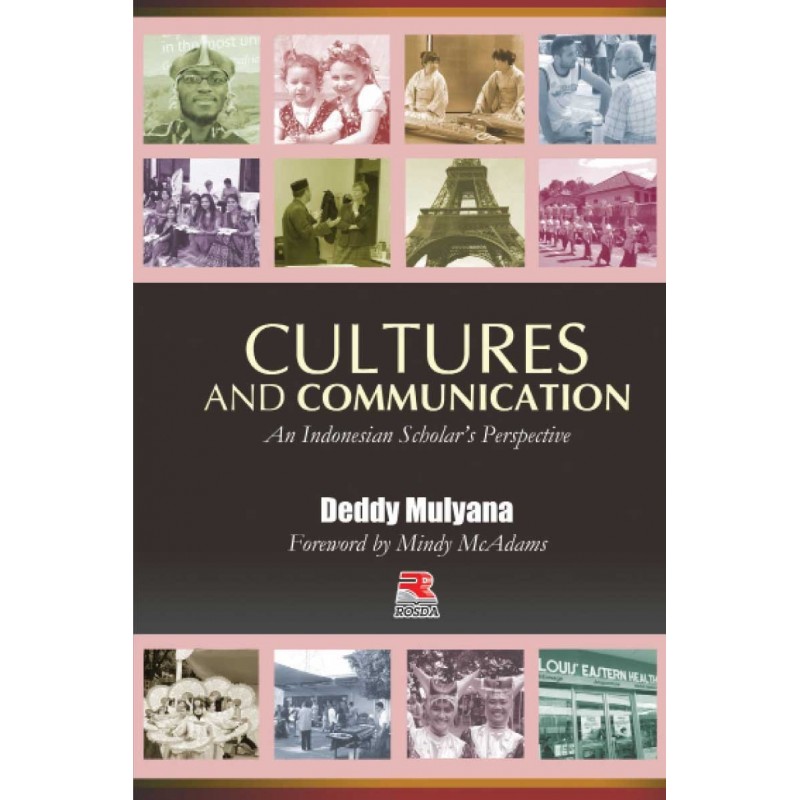BOOK REVIEW “Cultures and Communication” An Indonesian Scholar’s Perspective.
In an increasingly globalised world, how people interact across cultures have a critical influence on the health and wellbeing of both individuals and society more generally.
As a professor of communication studies and the dean of the Faculty of Communication Sciences at Padjajaran University, Deddy Mulyana has published a great English book in communication. Central to his work is the idea of cross-cultural understanding. This is especially appropriate within Indonesia whereby in 1945 the people had created a modern nation-state with a common language. Today, they still experience significant challenges of diversity. For Indonesia, diversity is both its greatest strength and challenge.
This book, “Cultures and Communication: An Indonesian Scholar’s Perspective”, is divided into two parts. The first one comprises general essays on cross-cultural communication and the construction of ethnic identity. It provides a foundation for the second part, which concerns the attitudes and perceptions of Indonesians living in Melbourne, Australia in 1990. The writer pursued his PhD degree at Monash University, Australia.
This book offers a unique perspective on culture and communication, not merely from an Indonesian point of view but basically based on the experiences and insights of an Indonesian scholar who has lived abroad in the United States, Australia, and Germany. He views his country with a critical eye and offers advice on how Indonesia can grow and improve. He asks the reader to consider an Islamic model of journalism, distinctly different from development journalism or the social responsibility model of the press.
Perhaps the most interesting is the final chapter, which introduces the reader to the perspectives of several Indonesians born in the 1930s. Those Indonesians experienced the flowering of nationalism, and their words help us remember that Indonesia has followed a path that is quite different from the neighbouring countries.
This book contributes to global respect and understanding within the communication discipline.
It can be useful to non-Indonesians who seek to know more about how modern Indonesians view themselves and others.
As Indonesia steps forward as a leader in southeast Asia, it surely becomes increasingly significant for the rest of the world to become familiar with Indonesian people and culture.
For Indonesian students going overseas to study, this book is instrumental in providing them with better clues and guides on how to survive and adapt. Indonesian students studying abroad, for example, need to pay attention to the following three matters for better survival and adjustment.
First, prospective students should prepare themselves more before enrolling in their course of study. Having an overall idea about the course they are going to enrol in might help students to engage more fully. In particular, understanding the academic culture, requirements, and the possible challenges that might be faced would be helpful. Thus, it is important to seek and ask for information from various sources including the university, department, and the Indonesian alumni. In addition, the prospective students must improve their academic skills, especially in the areas of writing and speaking, to engage more in their tasks as well as in-class activities.
Second, in an attempt to help international students succeed academically, universities and departments should also provide them with sufficient information on academic atmosphere and social culture. One way might be through ongoing mentoring or tutorials both before and during their study. The focus might also be on assisting international students in understanding the academic expectations, including possible challenges concerning academic workload and strategies to tackle them. In addition, academic staff should also consider their approach in teaching international students, for instance by adjusting their pace of speech.
Third, the scholarship provider should help prospective students to prepare. This could be done by providing more helpful materials during pre-departure training and by focusing more on developing academic skills, intercultural competence, and intercultural communicative competence. Moreover, conducting sharing sessions by alumni might also be useful to understand the learning expectations.
On top of that, this book reveals the central role of communicative practices in cultural identity construction through theoretical discussion as well as through incisive case studies on Indonesian migrants living in Melbourne, Australia.
Indeed, a must-read book for all scholars working in the field of migration studies.




